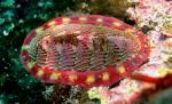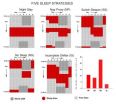Heart needs work after heart attack: U of A study challenges the notion that the heart must rest
2011-04-15
(Press-News.org) (Edmonton) A new study by researchers at the University of Alberta shows that for best results in stable patients after a heart attack, early exercise as well as prolonged exercise is the key to the best outcomes.
Study co-authors Mark Haykowsky, researcher in the Faculty of Rehabilitation Medicine, and Alex Clark, researcher in the Faculty of Nursing, along with fellow U of A researchers Don Schopflocher in the School of Public Health and Ian Paterson in the Faculty of Medicine & Dentistry, as well as colleagues from Duke, Stanford and UBC, reviewed more than 20 years of trials. The team found that stable patients who have suffered heart attacks get more benefits for heart performance when starting an exercise program one week after the heart attack, than waiting a month or longer to begin rehabilitation.
“While it’s been shown that exercise has a favourable effect on heart function, it’s also important to dispel the idea that what the heart needs is rest,” said Haykowsky.
The study shows that, in fact, the heart will become better with exercise sooner and with continued exercise over a longer period of time.
“In the past, patients in Canada and the US have been told to wait for one month before beginning their exercise treatment and this treatment typically only goes on for about three months,” said Clark.
Patients who begin an exercise program one week after their heart attack were found to have the best heart performance. For those who waited to begin their exercise rehabilitation program, the results showed that “for every week that a patient delayed his or her exercise treatment, he or she would have to train for the equivalent of one month longer to get similar benefits,” said Clark. “Our findings suggest that at least six months of exercise is the most beneficial.”
Exercise in this study is defined as aerobic exercise in a group setting to build up exercise capacity.
The researchers reviewed both benefits and harms of exercise. The authors say there was no evidence in the study to suggest that beginning an exercise program earlier that the typical waiting period had any detrimental effects.
“In the 70’s, health-care professionals were telling patients not to move for three months after a heart attack. Our findings suggest that stable patients need not wait a month to start exercising in a cardiac-rehabilitation setting,” said Clark.
Given that, in Canada, only one third of patients are referred to rehabilitation after a heart attack and then only 20 per cent then attend, Haykowsky says the key to the best outcome is for patients to not only get referred to rehabilitation, but to be referred early, participate and stick with it.
“Exercise is a wonder drug that hasn’t been bottled,” he said.
###
The study was recently published in the online journal Trials. END
ELSE PRESS RELEASES FROM THIS DATE:
Eyes of rock let chitons see predators
2011-04-15
(Santa Barbara, Calif.) –– Using eyes made of a calcium carbonate crystal, a simple mollusk may have evolved enough vision to spot potential predators, scientists say.
Daniel Speiser, a postdoctoral fellow in the Department of Ecology Evolution and Marine Biology at UC Santa Barbara, studied mollusks that he collected in the Florida Keys. His research of their vision, performed during his graduate studies at Duke University, resulted in a study published today by Current Biology.
The three-inch-long mollusks, called chitons, have hundreds of eye-like structures with ...
Business Education Simulations from Realityworks, Inc. Highlighted in Scholastic Administrator Magazine "Best in Technology" Article
2011-04-15
Experiential learning technology that allows students to simulate a real business office environment was recently featured in the Scholastic Administrator Spring 2011 magazine. The article, entitled "Best in Tech: Piloting New Technology", showcased a review by Ruthie Bass of North Shore Senior High School, Galena Park ISD in Houston, Texas of Business Education Simulations program from Realityworks, Inc.
The Scholastic Administrator article highlights district leaders piloting programs with new technologies and how they are incorporating them into the classroom. The ...
Rising star of brain found to regulate circadian rhythms
2011-04-15
BOSTON (April 14, 2011, noon ET) — The circadian system that controls normal sleep patterns is regulated by a group of glial brain cells called astrocytes, according to a study published online on April 14th in Current Biology, a Cell Press publication. Neuroscientists from Tufts University School of Medicine found that disruption of astrocyte function in fruit flies (Drosophila) led to altered daily rhythms, an indication that these star-shaped glial cells contribute to the control of circadian behavior. These results provide, for the first time, a tractable genetic model ...
Carbon sequestration estimate in US increased -- barring a drought
2011-04-15
CORVALLIS, Ore. – A research group has concluded that forests and other terrestrial ecosystems in the lower 48 states can sequester up to 40 percent of the nation's fossil fuel carbon emissions, a larger amount than previously estimated – unless a drought or other major disturbance occurs.
Widespread droughts, such as those that occurred in 2002 and 2006, can cut the amount of carbon sequestered by about 20 percent, the scientists concluded in a recent study that was supported by the National Science Foundation and U.S. Department of Energy.
The research, published ...
Study: Compassion, not sanctions, is best response to workplace anger
2011-04-15
Challenging traditional views of workplace anger, a new article by a Temple University Fox School of Business professor suggests that even intense emotional outbursts can prove beneficial if responded to with compassion.
Dr. Deanna Geddes, chair of the Fox School's Human Resource Management Department, argues that more supportive responses by managers and co-workers after displays of deviant anger can promote positive change at work, while sanctioning or doing nothing does not.
"The trouble with sanctions: Organizational responses to deviant anger displays at work," ...
Toward a more efficient use of solar energy
2011-04-15
This release is available in German.
The exploitation and utilization of new energy sources are considered to be among today's major challenges. Solar energy plays a central role, and its direct conversion into chemical energy, for example hydrogen generation by water splitting, is one of its interesting variants. Titanium oxide-based photocatalysis is the presently most efficient, yet little understood conversion process. In cooperation with colleagues from Germany and abroad, scientists of the KIT Institute for Functional Interfaces (IFG) have studied the basic mechanisms ...
Wikipedia deemed a reliable source for political info by new study
2011-04-15
Not so long ago Wikipedia was considered a playground for Capitol Hill staffers to game the system and make "the boss look better and the opponent look ridiculous."
Now a peer-reviewed study by Brigham Young University political scientist Adam Brown validates Wikipedia as a reliable place to get a political education.
The research focused on past and present candidates for governor across the 50 states. Brown fact-checked biographical information and voting statistics and found very few inaccuracies.
"My finding is optimistic for the health of our country," said ...
A sleep strategy commonly used by night nurses throws off their circadian clocks
2011-04-15
As many as 25 percent of hospital nurses go without sleep for at least 24 hours in order to adjust to working on the night shift, which is the least effective strategy for adapting their internal, circadian clocks to a night-time schedule.
That is one of the results of the first study to examine the strategies that night nurses use to adjust between day and night sleep cycles. The study was based on questionnaires from 388 nurses who work at the Vanderbilt University Medical Center and the results are published in the April 13 issue of the scientific journal, Public ...
New ACE survey shows people with type 2 diabetes experience low blood sugar during typical daily activities
2011-04-15
SAN DIEGO, Calif., April 14, 2011 – New survey data released today at the American Association of Clinical Endocrinologists (AACE) 20th Annual Meeting and Clinical Congress reveal that more than half (55%) of people with type 2 diabetes across the country report they have experienced hypoglycemia, or low blood sugar. What's more, many experienced it during typical daily activities such as working (42%), exercising (26%) and driving (19%), according to the survey, designed by the American College of Endocrinology (ACE) and supported by Merck. Recognizing symptoms like nervousness, ...
Temporary memory loss strikes hospitalized seniors
2011-04-15
CHICAGO --- Battling an illness, lack of sleep and strange surroundings can make any hospital patient feel out of sorts.
For seniors, hospitalizations actually may cause temporary memory loss and difficulty in understanding discharge instructions, according to a new Northwestern Medicine study.
The seniors go back to normal one month after the hospital stay, the study found. But immediately following a hospitalization is a critical time in which seniors may need extra support from healthcare professionals and family, according to Lee Lindquist, the lead author of ...

